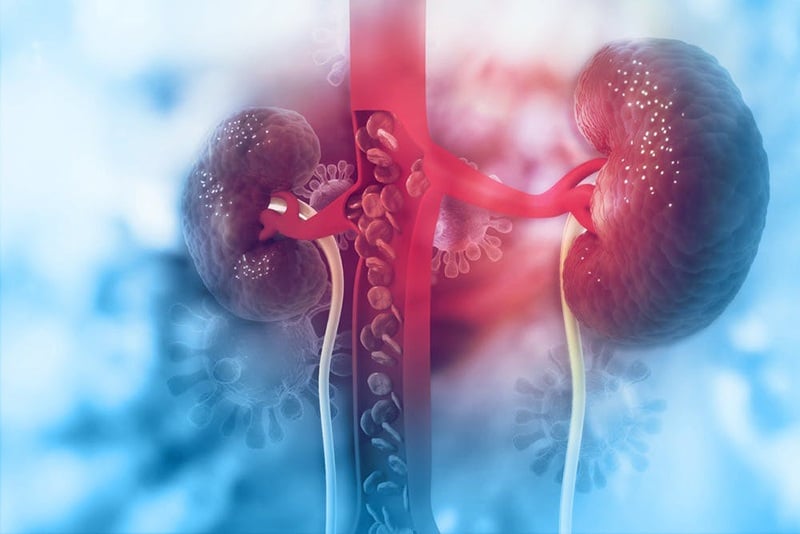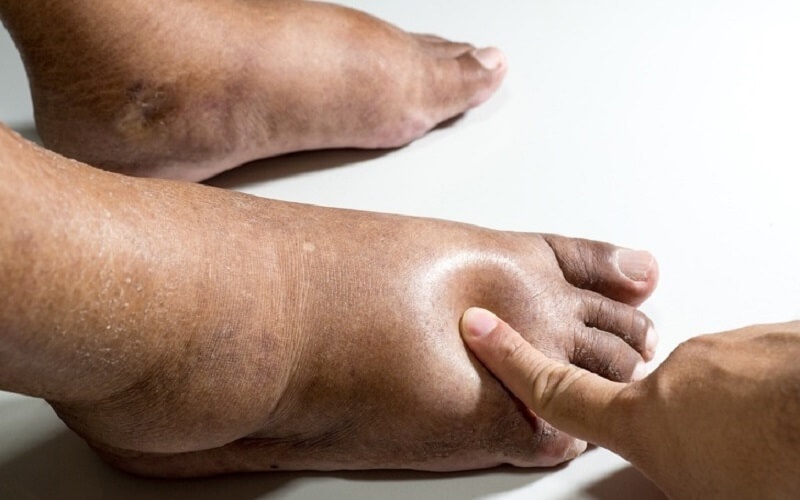1. Changing urinary habits
One of the earliest signs of kidney issues is a noticeable change in urinary habits. If you find yourself urinating more frequently, especially at night, or if the color of your urine is darker or lighter than normal, be cautious of kidney disease.

According to the National Kidney Foundation, changes in urine color and frequency can be a warning sign of decreased kidney function. The organization also advises individuals to not ignore any abnormalities in urinary habits.
Fatigue is a common symptom in daily life. However, if you experience prolonged fatigue that doesn’t improve even after resting, it could be a concerning sign.
The kidneys produce a hormone called erythropoietin, which stimulates red blood cell production. When kidney function is impaired, the process of red blood cell production is affected, leading to anemia and fatigue. If you constantly feel lack of energy to carry out daily activities even after getting enough sleep, seek medical attention.
3. Swelling in the feet, hands, or face
Kidneys are responsible for removing excess fluid from the body. Therefore, salt will be retained in the body and make the swelling worse. Swelling can particularly occur in the feet, ankles, hands, face, or areas around the eyes.
Proteins leaking from the kidneys into the urine can also cause bags around the eyes.

4. Dry, itchy, or rashes on the skin
When the body is full of toxins, it tries to eliminate them through the skin by causing rashes, dryness, or irritation.
You may experience itchiness due to urea (a metabolic product of protein breakdown) and phosphorus (a mineral) not being excreted by the kidneys.
5. Shortness of breath
When the kidneys are unable to remove fluid from the body, it can accumulate in the lungs. This makes it difficult for you to take deep breaths to get oxygen into your blood, resulting in shorter and faster breaths.
How to prevent kidney disease?
To prevent and reduce kidney issues, you should follow these steps:
– Regularly check blood sugar levels if you have diabetes.
– Maintain stable and healthy blood pressure.
– Follow a healthy diet (If you suspect kidney problems, avoid foods high in protein, fat, sodium, and potassium).
– Have regular annual health check-ups to ensure the normal functioning of the kidneys.
– Avoid overuse of pain relievers (As they can damage the kidneys, especially nonsteroidal anti-inflammatory drugs like ibuprofen and naproxen).
– Seek immediate medical attention if you suspect a bladder or kidney infection.
– Avoid smoking.
The National Kidney Foundation (US) advises individuals with high blood pressure, diabetes, or a family history of kidney disease to get their kidneys checked annually. Make sure that doctors are aware of your condition when you have warning signs of the disease.
These symptoms can also be signs of other medical conditions. If you notice any unusual signals that your body is trying to “send” you, make an appointment with a doctor for early examination.
Delicious and Nutritious Alternative to Chicken Meat: High Protein, Budget-Friendly Snack at Only 5,000đ – a Plate Full of Goodness
Tofu, also known as bean curd, is a nutritious, versatile, and affordable food option that is favored by many households. It is packed with nutrients, easy to consume and prepare, and offers a wide range of culinary possibilities. Tofu is a popular choice for those seeking a wholesome and budget-friendly meal solution.





































